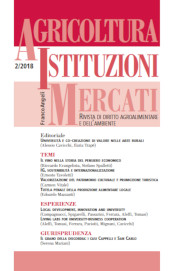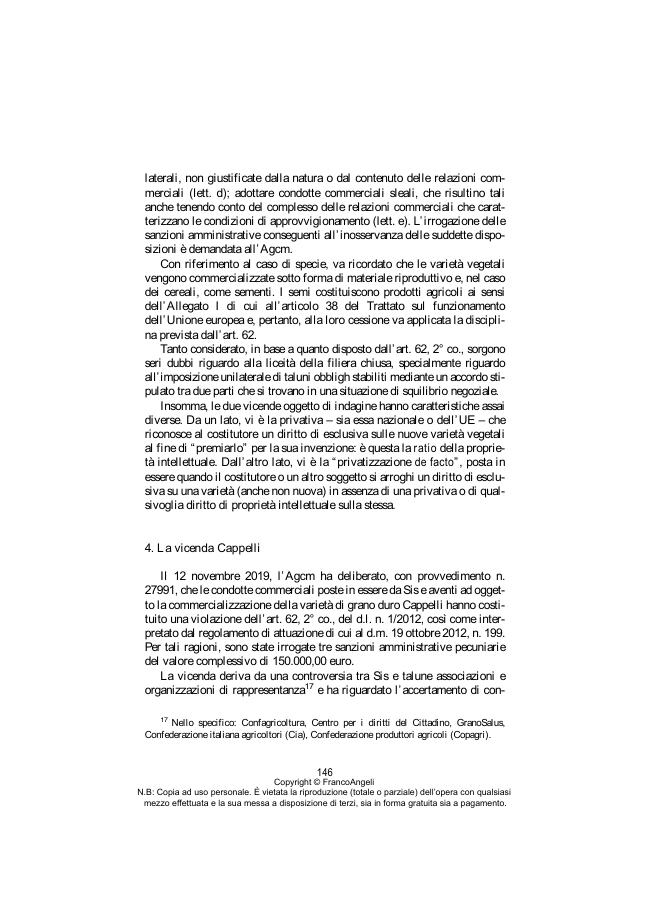Il grano della discordia : il provvedimento Cappelli dell'Agcm e la sentenza San Carlo del Tribunale di Roma
133-159 p.
Il presente contributo ha l'obiettivo di analizzare due recenti decisioni aventi ad oggetto distinte varietà di grano duro: il provvedimento sul frumento Cappelli dell'Autorità Garante della Concorrenza e del Mercato e la sentenza sul grano San Carlo del Tribunale di Roma. Entrambi i casi riguardano, sebbene in modo diverso, il tema dei diritti di esclusiva sulle varietà vegetali. Nella vicenda San Carlo, tali diritti derivano dalla concessione di una privativa nazionale sulla nuova varietà vegetale. Diversamente, nel caso Cappelli è stata posta in essere una privatizzazione de facto di una varietà antica, in assenza di qualsivoglia diritto di proprietà intellettuale sulla stessa. L'elaborato vuole altresì porre l'accento sull'importanza del miglioramento genetico in agricoltura, necessario affinché vengano sviluppate varietà sempre più produttive, resistenti e sostenibili.
Per fare ciò, è opportuno permettere al costitutore di ottenere un ritorno sugli investimenti, mediante il riconoscimento di un'esclusiva sulla nuova varietà. Tuttavia, tale esclusiva non può essere illimitata né estendersi a varietà di pubblico dominio. [Testo dell'editore].
The current study has the purpose to analyse two recent decisions about distinct plant varieties of durum wheat: the Cappelli decision of the Italian Antitrust Authority and the San Carlo judgment of the Tribunale di Roma. Both cases focuses, although in a different way, on exclusive rights over plant varieties. In the San Carlo instance, the exclusive rights arise from the grant of a national plant variety right over the new variety. Whereas, in the Cappelli case, there has been a de facto privatization of an ancient variety, deprived of any intellectual property right whatsoever. The study also aims at highlighting the importance of plant breeding for agricultural purposes in order to develop more productive, resistant, and sustainable varieties. To this end, it is deemed necessary to allow the breeder's return on investment, through the recognition of an exclusive right on the new variety. However, such an exclusive right shall not be limitless nor concern public-domain varieties. [Publisher's text].
Ist Teil von
Agricoltura, istituzioni, mercati : rivista di diritto agroalimentare e dell'ambiente : 2, 2018-
Artikel aus derselben Ausgabe (einzeln erhältlich)
-
Informationen
ISSN: 1971-8373
THEMENBEREICHE
KEYWORDS
- Miglioramento genetico, varietà vegetale, privativa per i ritrovati vegetali, diritto del costitutore, proprietà intellettuale, normativa sementiera
- Plant breeding, plant variety, plant variety right, breeder's right, intellectual property, seed marketing legislation



